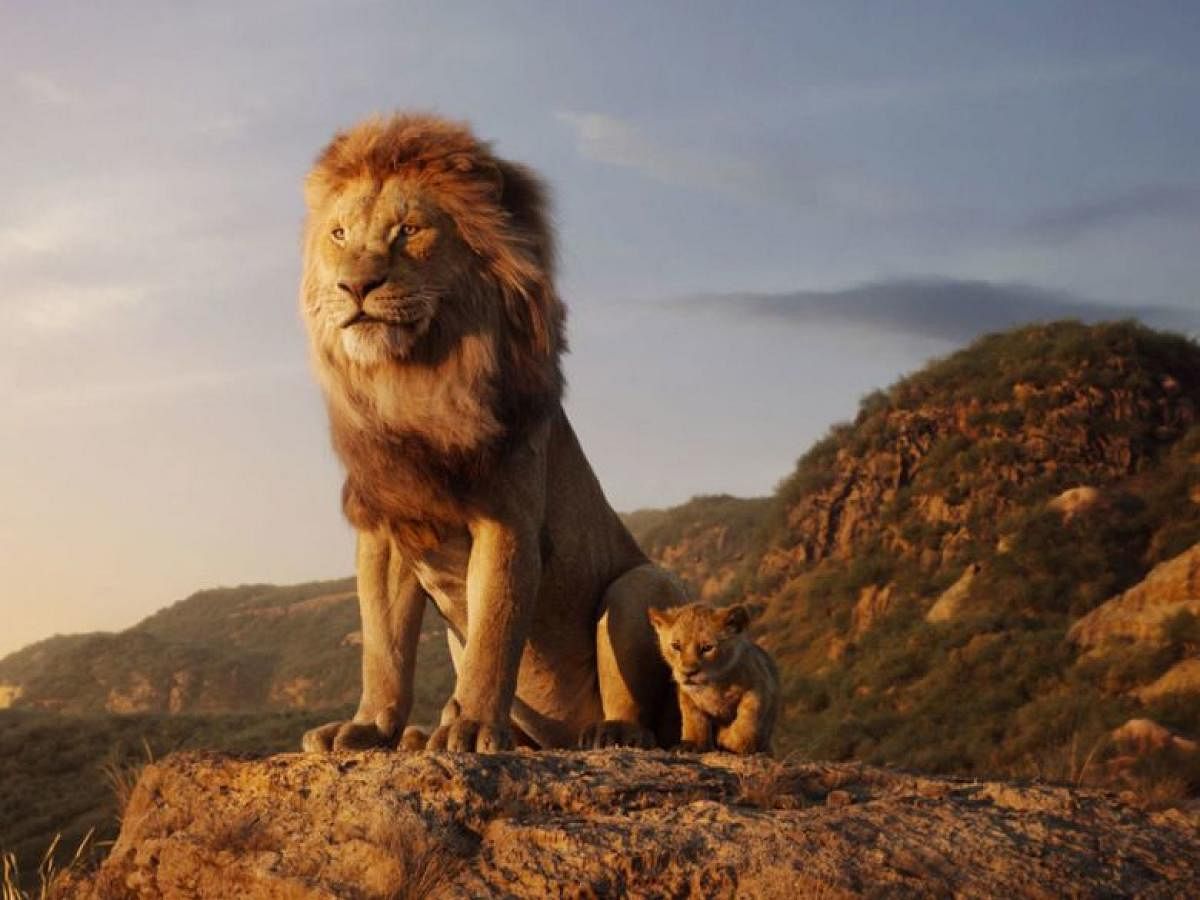Film: Lion King
Rating: 3.5/5
Language: English (U)
Cast: James Earl Jones, Donald Glover, Beyoncé, Chiwetel Ejiofor
Disney's youngest fans may be the only ones who can pass a fair judgement on the new Lion King, because, to the rest, the 1994 original has left so wide an imprint on pop culture that the question “how would you rate the movie if the original never existed?” is an exercise in futility.
To them, the two movies would, at the moment, would look like pieces in the same set, joined by a hinge.
Still, since any comparison will show the original in a better light, we must ask the question, if only to notice all the goodies that director Jon Favreau has brought to the new film.
For instance, the detailing in the animation practically calls out to the viewer to see where the craft has reached in 2019.
The geography is so well mapped out that if you were to be dropped off anywhere, you would be pretty confident about finding your way back to Pride Rock.
Favreau feels no pressure to make the story as taut as the original, and while it seems ironic to have a Shakespearean adaptation that doesn’t prize brevity above all else, the director indulgences in precious details about the animal kingdom the way the original never did.
For good or for bad, the plot and characters have been fleshed out better. If the original told the story of an unlikely coup by an brilliant ironist with the help of some idiotic hyenas, this shows a very realistic coup by a bitter royal with the help of a marginalised group of hyenas.
To keep up with the times, the film makes its women characters more outspoken than in the original. Nala is a more brazen fighter now than before; Sarabi really drives her point to a man that ‘no means no’; Shenzi, who in the original tells a fellow hyena to say "Mufasa" to get a jolt of fright, becomes a ‘full’ villain, an adversary for Nala to take down.
However, in the original, Nala was anyway stronger and wiser than Simba but always understated; Sarabi was the lieutenant in charge of hunting, who calls out her king’s greedy governance flat out; Shenzi was hilarious.
So, toning down the sense of humour and playing up the nuances of women characters by making them more outspoken makes it look like a self-conscious token nod to feminism.
Favreau also pushes realism to an extent where we have animals that have a same deadpan expression — whether they are falling in love or killing their brother — with mouths somewhat moving to account for their speech.
The new film made sure that all the characters were voiced by celebrities, but none of them except James Earl Jones (the only actor from the original in the new iteration, who voices Mufasa) can hold a handle to the old cast. Jones somehow manages to sound even better as Mufasa this time.
There is no greater disappointment than the new Scar (Chiwetel Ejiofor). The most Shakespearean of Disney characters, he is based on Claudius (from Hamlet) though he resembles Iago (Othello) more. In the original, he starts off with a Bard-like monologue and goes on to relish every evil thought and taste the cruelty in every one of his jokes through the movie.
He could be funny, spiteful, insightful, cruel and ironic at the same time; sometimes all in the same sentence. The new Scar is a just a lion hatching a ploy.
Despite these lows that come from too much expectation, Favreau succeeds better than other Disney directors in weaving a poetic, documentary-like meditation on the life of animals that fills the empty spaces in an all-too familiar plot.
